The Curiosity Index: Ranking Europe’s Most Curious Nations
As human beings, we’re generally a curious species. The thirst for exploration and knowledge has driven the history of human technology and society and there’s always something new to be discovered. This filters right down to our everyday lives, with countless television channels dedicated to 24/7 news, documentaries providing us with new information, and even social media accounts dedicated to sharing interesting facts. But which European nation can claim to be the most curious?
Office furniture and stationery suppliers, Viking, recently completed a study aiming to find the most curious nation in Europe. Using a set of curiosity factors, such as Wikipedia page views per month and vocational training, they were able to create a Curiosity Index and rank Europe’s most knowledge-hungry nations.
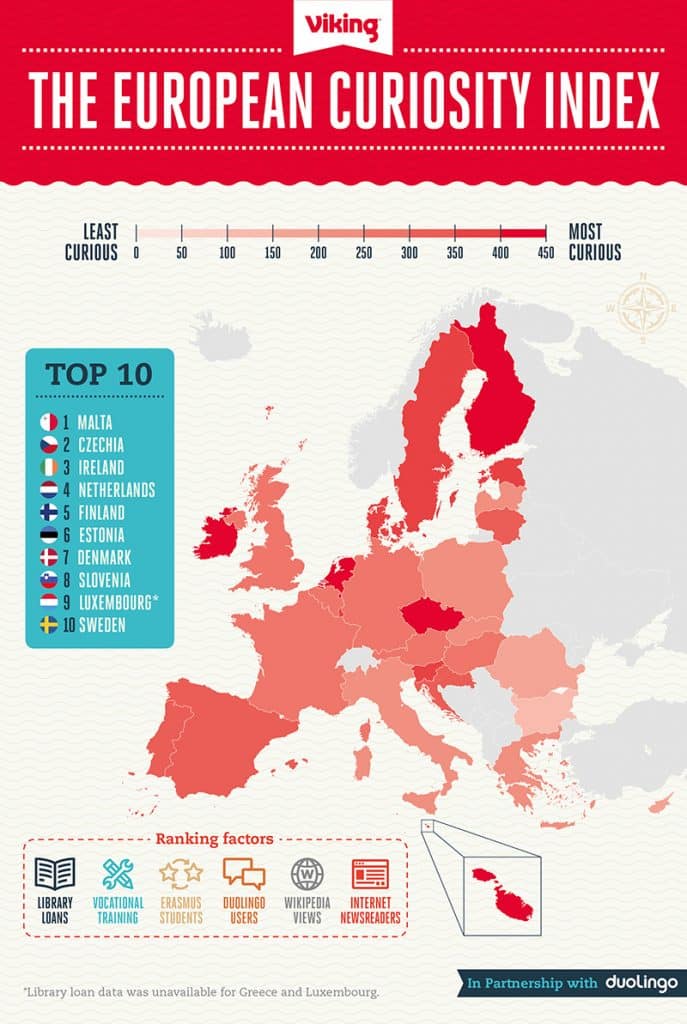
The Overall Scores
The curiosity index was put together using the results from each of the following ranking factors:
- Wikipedia page views per month per person with internet access
- Active users on language-learning site Duolingo
- Use of the internet for reading news or books
- Number of library loans per year per capita
- Number of Erasmus students per 1,000 students
- Hours spent in vocational training at work

The results from these factors were then turned into percentile scores, added together and put into an overall ranking. In the overall rankings, the United Kingdom landed in a disappointing 19th position out of 28, with an average curiosity index rating of 264.3. This fell well below the average of 308.8 and put the UK well in the bottom half of the rankings table.
The UK’s closest neighbours, Republic of Ireland, were much more successful, they came joint second alongside Czechia and Netherlands, with an overall score of 421.4. These nations sat behind Malta, who were crowned Europe’s most curious nation with a score of 432.1. The table was held up by Bulgaria (110.7), Romania (192.9), and Cyprus (196.4) in the bottom three.
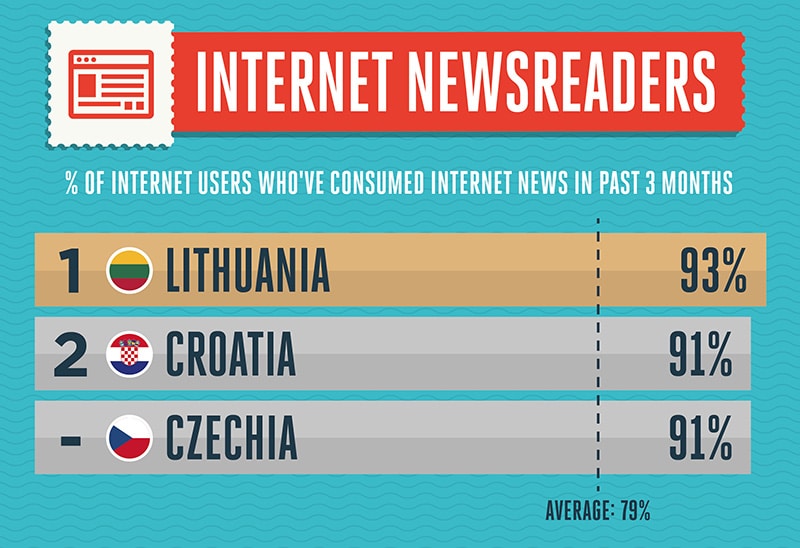
Online News Reading
People in the UK are privileged in that 95% of them have access to the internet, but they aren’t necessarily using this access to fulfil their curiosities. During a three-month period, only 72% of Brits used the internet to read the news or books, this is compared to the European average of 79% and the top rating of 93% in Lithuania. So, whether it’s scrolling through Facebook statuses or watching YouTube videos of cats, Brits seem to be filling their time online with other things.
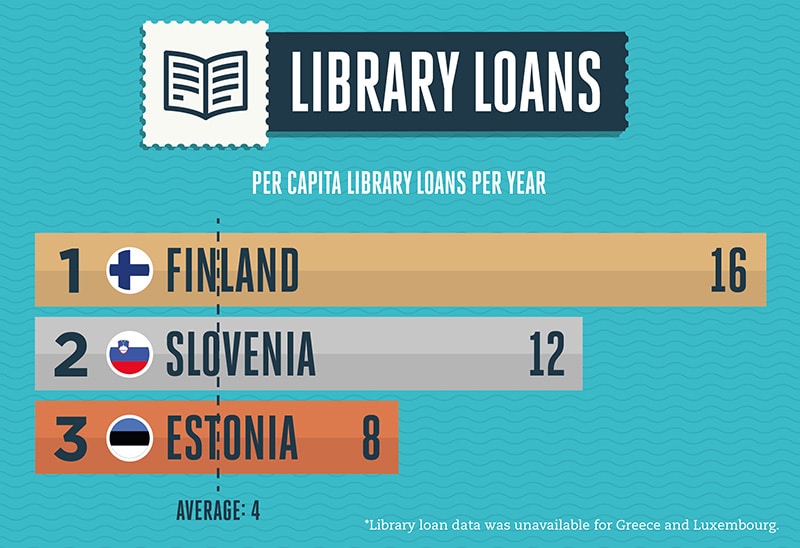
Library Loan Numbers
This isn’t to say that the people of Britain aren’t keen readers, the UK performed slightly better when it comes to library loans. Compared to a European average of 4 annual library book rentals per capita, Brits came in close to the average with 3.7 annual book rentals. The Irish are well above the average, however, with an average of 7 library loans per year per person.
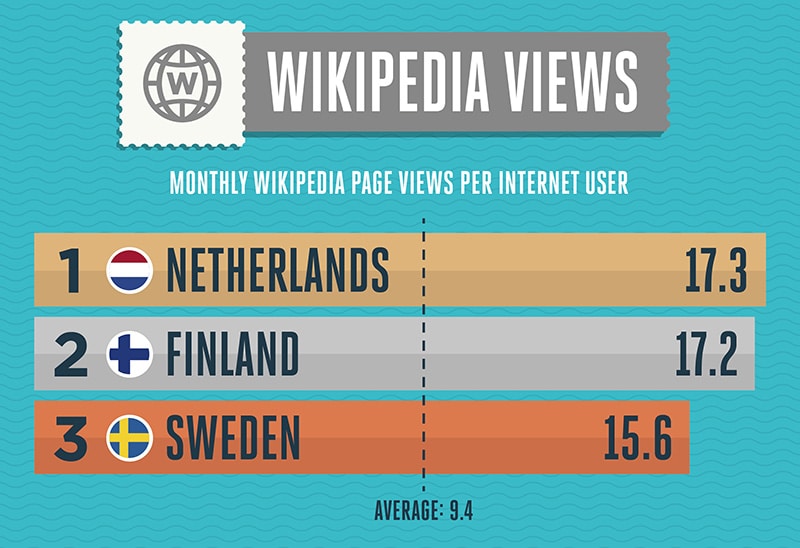
Wikipedia Page Views
Wikipedia has become a go-to online hub for those looking to quench a thirst for curiosity, with thousands of pages making up one of the world’s biggest informational resources. It was a close-run contest between Finland and the Netherlands for the most Wikipedia page views, with 17 per internet user per month. These were both well above the European average of 9.
The United Kingdom came in 28% above the average when it came to Wikipedia views, suggesting that Brits use the site to satisfy their curiosity as opposed to accessing online news. With 12 monthly page views per internet user, Brits come in well above-average in their quest for knowledge on the online encyclopaedia. Ireland ranked fifth highest for this factor, with 13.4 page views per user.
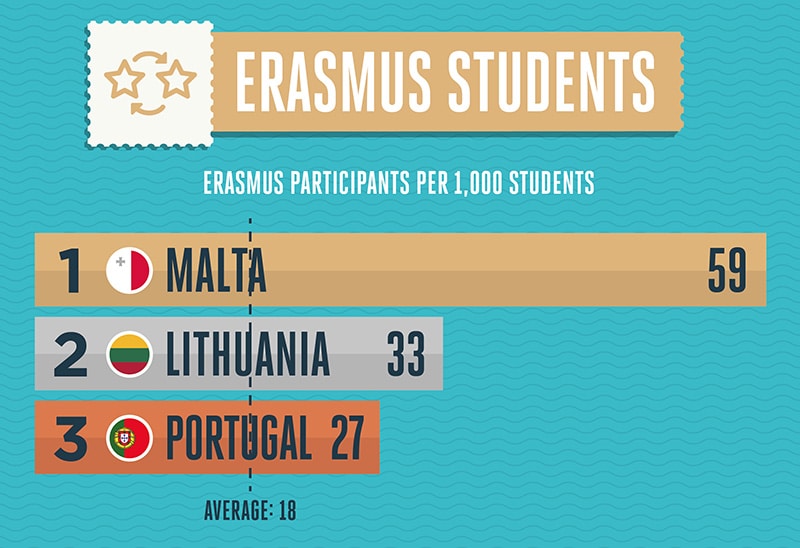
Erasmus Students
The quest for knowledge is often associated with further education and travel. That’s why we looked at the numbers of Erasmus students, an exchange programme that helps students study abroad to experience more of the world.
Unfortunately for the United Kingdom this was their worst performing area, with only 7 students per 1,000 studying abroad, a huge 61% below the European average of 18. Ireland also fell behind the average here, with 16 Erasmus students per 1,000. The clear curiosity-champions when it came to getting an education abroad were from Malta. Per 1,000 Maltese students, 59 travel to different parts of the continent in search of educational experiences.
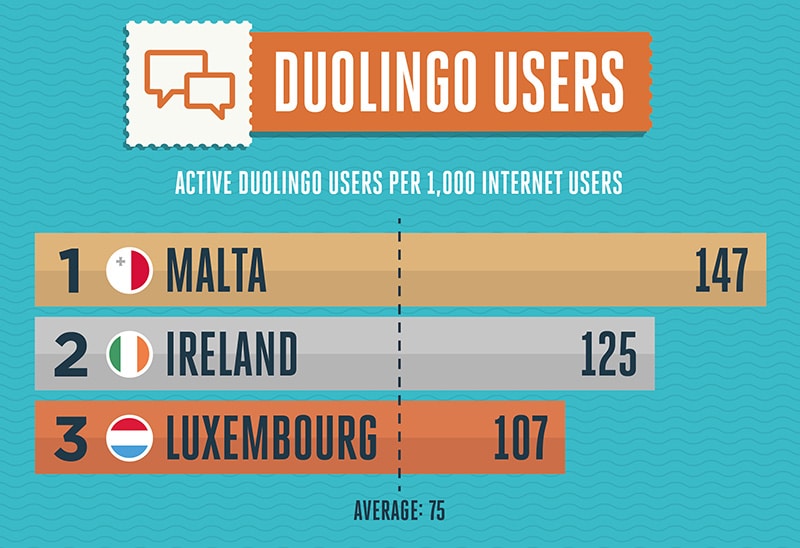
Learning Another Language
Learning another language is a great way to immerse yourself in a new culture, whether you’re planning on visiting, moving to another country, or just want to learn something new. We looked at popular online language-learning website, Duolingo, and worked out the amount of active subscribers per 1,000 internet users in each country. There are other language learning platforms available, but Duolingo gave us a good cross-section of the European curiosity to learn another language.
Once again, Malta came out on top when it came to this curiosity factor. Per 1,000 Maltese internet users, 147 were active on Duolingo. The Irish came second in this ranking factor, with a well-above average 125 active users per 1,000. These both surpass the European average of 75 and could be owing to the number of students they have studying abroad and high levels of tourism. Good news for Brits; this category saw the United Kingdom come out 5% above average, with 79 users per 1,000.
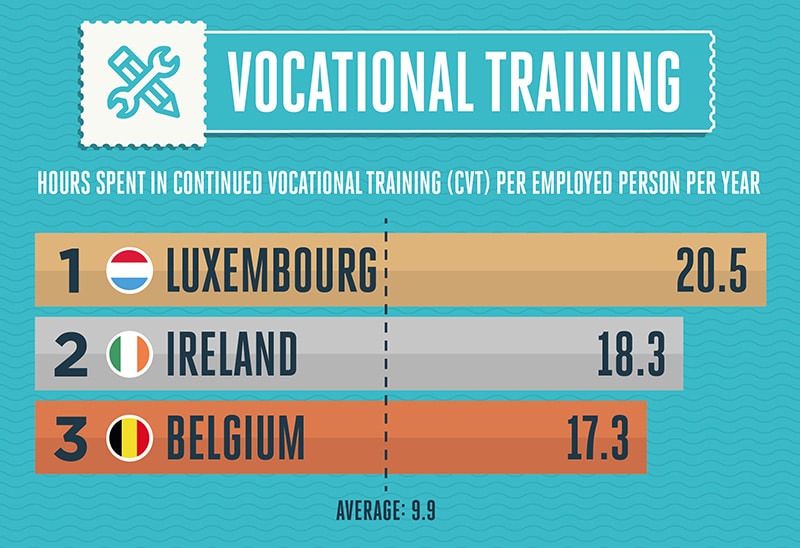
Vocational Training
For those who are in full-time work, finding the time to complete extra training and studies can be difficult. Some employers choose to offer Continuous Vocational Training (CVT), allowing their employees to continue learning whilst in their employment. We looked at the annual number of hours spent in CVT per employed person, giving a good impression of how important it is for workplaces across Europe to prioritise continuous learning.
The average number of hours spent in CVT across all countries in the study was 9.9. In the United Kingdom, the time given was 12% below the average, at 8.7 hours. Once again, Ireland came out well above their neighbours, they found themselves in second with 18.3 hours provided for CVT per employed person. This was only beaten by Luxembourg, where the average employee spends 20.5 hours in CVT. For any employer looking to provide more training, looking into office storage solutions is a good idea.
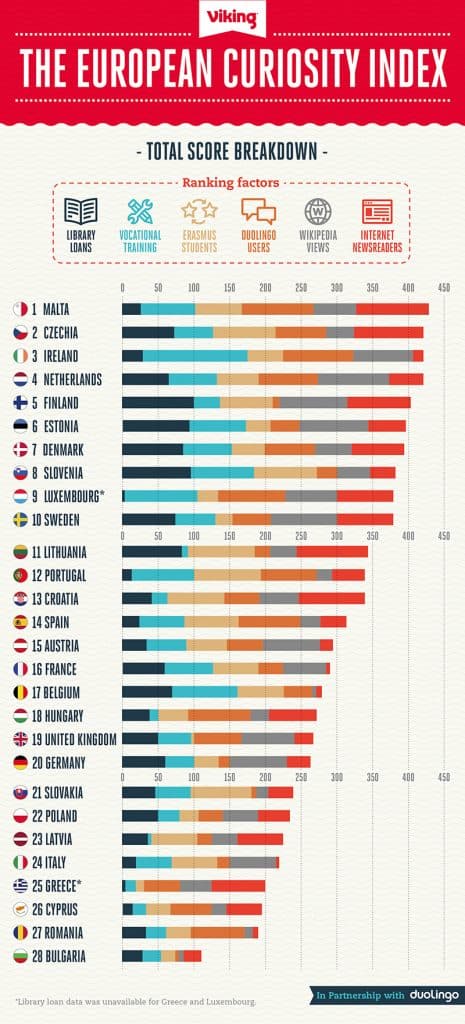
Despite some nations doing better than others in our curiosity index, there is clearly a constant quest for knowledge across Europe. As an employer, offering opportunity for your employees to learn and expand their knowledge could play an important part in helping to satisfy this curiosity and get more from your workforce.
Admin Notice: No Viking Direct products found in this post.
Admin Notice: No Viking Direct products found in this post.






